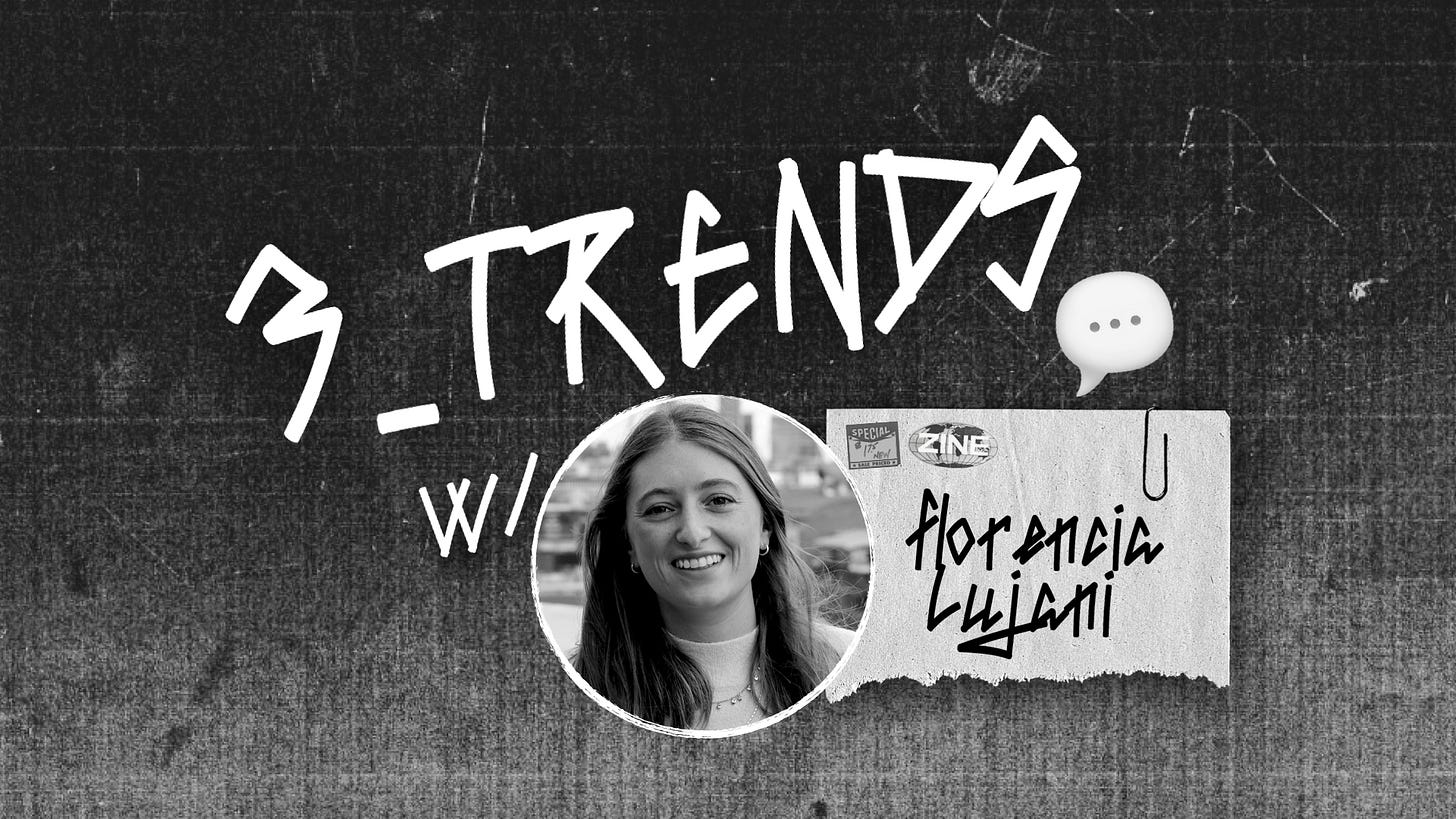3_TRENDS_Vol.5: Florencia Lujani: Private Citizens, Sub vs. Counterculture + Degrowth Economics
Vol.5
3_TRENDS is an interview series with the world's leading cultural researchers and thinkers, sharing their favorite overlooked trends.
Florencia Lujani (FL) is a strategy director based in London, UK. She's been doing brand and creative strategy for over ten years, helping translate the cultural landscape into strategic direction for brands. She also…
Keep reading with a 7-day free trial
Subscribe to ZINE to keep reading this post and get 7 days of free access to the full post archives.




